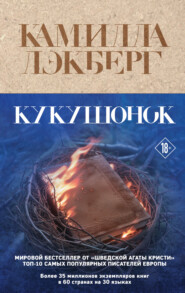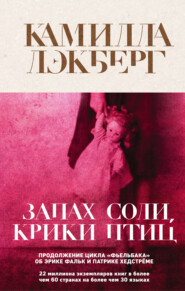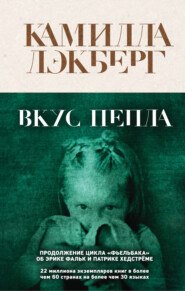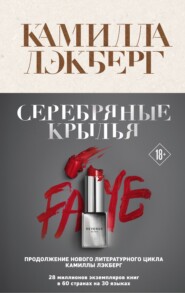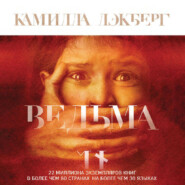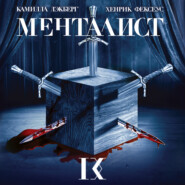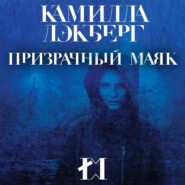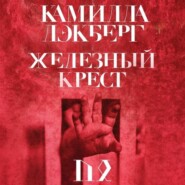По всем вопросам обращайтесь на: info@litportal.ru
(©) 2003-2025.
✖
The Girl in the Woods
Настройки чтения
Размер шрифта
Высота строк
Поля
He managed to find a sheltered cleft on the back side of Långskär Island.
‘Okay, we’re going to pull in here. Could you jump ashore with the mooring line?’
Sam pointed to the rope lying on the deck in the bow of the boat.
‘Jump?’ said Jessie.
Jumping was not something she ever did. And definitely not from a boat on to slippery rocks.
‘It’s not hard,’ said Sam calmly. ‘I’ll stop the boat right before we get there. Crouch down in the bow so you can jump ashore. It’ll be fine. Trust me.’
Trust me. Was she even capable of such a thing? Trust someone? Trust Sam?
Jessie took a deep breath, crawled forward to the bow, took a tight grip on the rope, and crouched down. As the island got closer, Sam slowed their approach, and they slid gently and quietly towards the rocks where they would moor. Much to her own surprise, Jessie leapt from the boat on to the rocks, landing lightly, and still holding the rope in her hand.
She’d done it.
It was their fourth trip to the Hedemyr department store in two days, but there wasn’t much else to do in Tanumshede. Khalil and Adnan sauntered around the top floor among all the clothing and accessories on display. In the beginning Adnan had a hard time dealing with all the looks levelled at them, and the suspicion. By now he’d accepted that they attracted attention. They didn’t look like Swedes or talk like Swedes or move like Swedes. He probably would have stared too if he’d seen a Swede in Syria.
‘What the hell are you looking at?’ snapped Adnan in Arabic, turning towards a woman in her seventies who was staring at them.
No doubt she was keeping an eye on them to make sure they didn’t shoplift. Khalil could have told her that they would never take anything that didn’t belong to them. They wouldn’t dream of it. They weren’t brought up like that. But when she snorted and headed for the stairs to the ground floor, he realized it would be pointless.
‘What kind of people do they think we are? It’s always the same thing.’
Adnan continued cursing in Arabic and waving his arms around so he almost knocked over a lamp on a nearby shelf.
‘Let them think whatever they like. They’ve probably never seen an Arab before,’ said Khalil.
Finally he got Adnan to smile. Adnan was two years younger, only sixteen, and sometimes he still seemed like a boy. He couldn’t control his emotions; they controlled him.
Khalil hadn’t felt like a boy for a long time now. Not since the day when the bomb killed his mother and little brothers. The mere thought of Bilal and Tariq brought tears to his eyes, and Khalil quickly blinked them away so Adnan wouldn’t notice. Bilal was always getting into mischief, but he was such a happy kid, it was hard to be mad at him. Tariq was always reading and filled with curiosity; he was the boy everyone said would be something great one day. In a split second they were gone. Their bodies were found in the kitchen, with their mother lying on top of the boys. She hadn’t been able to protect them.
Clenching his fists, Khalil looked around, thinking about how his life was now. He spent his days in a small room in the refugee centre, or he roamed through the streets in this strange little town where they’d landed. Such a quiet and desolate place, lacking all smells and sounds and colours.
The Swedes went about in their own world, barely even greeting one another, and they seemed almost frightened if anyone addressed them directly. They all spoke so quietly, without gesturing.
Adnan and Khalil went downstairs and out into the summer heat. They paused on the pavement outside the department store. It was the same thing every day. So difficult to find anything to occupy their time. The walls of the refugee centre seemed to close in, as if trying to suffocate them. Khalil didn’t want to seem ungrateful. Here in Sweden he had a roof over his head and food in his belly. And he was safe. There were no bombs falling here. People lived without the threat of either soldiers or terrorists. Yet even in safety it was hard to live a life in limbo. Without a home, without anything to do, without purpose.
This was not living. It was merely existing.
Adnan sighed as he stood next to Khalil. In silence they headed back to the refugee centre.
Eva stood as if frozen to the spot, hugging her arms around her torso. Peter kept rushing around. He’d searched everywhere at least four or five times, lifting up bedclothes, moving the same boxes, calling Nea’s name over and over. But Eva knew it was pointless. Nea wasn’t here. She could feel her absence in her body.
She squinted her eyes, noticing a dot way off in the distance. A dot that got bigger and bigger, becoming a white splotch as it approached. Eva realized it must be the police. Soon she could clearly see the blue and yellow markings on the car, and a chasm opened inside her. Her daughter was missing. The police were here because Nea was missing. She’d been missing since this morning. Her brain struggled to take in the fact she’d been missing since the morning. How could they have been such bad parents not to notice their four-year-old had been gone all day?
‘Are you the one who called?’
An older man with silver hair had got out the police car and now came over to her. She nodded mutely, and he reached out to shake her hand.
‘Gösta Flygare. And this is Bertil Mellberg.’
An officer about the same age but significantly heavier shook her hand as well. He was sweating copiously and raised his arm to wipe his brow on his shirtsleeve.
‘Is your husband here?’ asked the thinner officer with greyer hair as he scanned the yard.
‘Peter!’ called Eva, alarmed at how weak her voice sounded.
She tried again, and Peter came rushing out of the woods.
‘Have you found her?’ he shouted.
Then he caught sight of the policemen and his heart sank.
It all seemed so unreal to Eva. This couldn’t be happening. She expected to wake up at any second, relieved to find she’d simply been dreaming.
‘Why don’t we sit down and talk over a cup of coffee?’ said Gösta calmly as he touched Eva’s arm.
‘Of course. Come in. We’ll sit in the kitchen,’ she said as she led the way.
Peter stayed where he was, standing in the middle of the farmyard, his long arms hanging limply at his sides. She knew he wanted to keep searching, but she couldn’t handle this conversation on her own.
‘Peter, come on.’
With heavy steps he followed his wife and the police inside. Turning her back on the others, Eva began fiddling with the coffee machine, but she was very aware of the officers’ presence. Their uniforms seemed to fill the whole room.
‘Milk? Sugar?’ she asked them, and both nodded.
She got out the milk and sugar as her husband stood in the doorway.
‘Sit down,’ she told him, a bit sharply, and he obeyed.
As if on autopilot, she set the table with coffee mugs, spoons, and a packet of Ballerina biscuits she found in the cupboard. Nea loved Ballerina biscuits. The thought made Eva flinch, and she dropped a spoon on the floor. Gösta bent down to pick it up, but she beat him to it. She put the spoon in the sink and took a new one out of the silverware drawer.
‘Shouldn’t you be asking us questions?’ said Peter, keeping his gaze fixed on his hands. ‘She’s been missing since this morning, and every second counts.’
‘We’ll wait for your wife to sit down, and then we’ll start,’ said Gösta with a nod towards Eva.
She poured coffee for all of them and sat down.
‘When did you last see the little girl?’ asked the fat officer as he reached for a biscuit.
Eva felt a rush of anger. She’d put the biscuits on the table because it was expected when guests came over, but it infuriated her to see him munching on a chocolate biscuit as they answered questions about Nea.
Eva took a deep breath, knowing she was being irrational.
‘Last night. She went to bed at the usual time. She has her own bedroom, and I read her a good-night story and then turned off the light and closed the door.’






